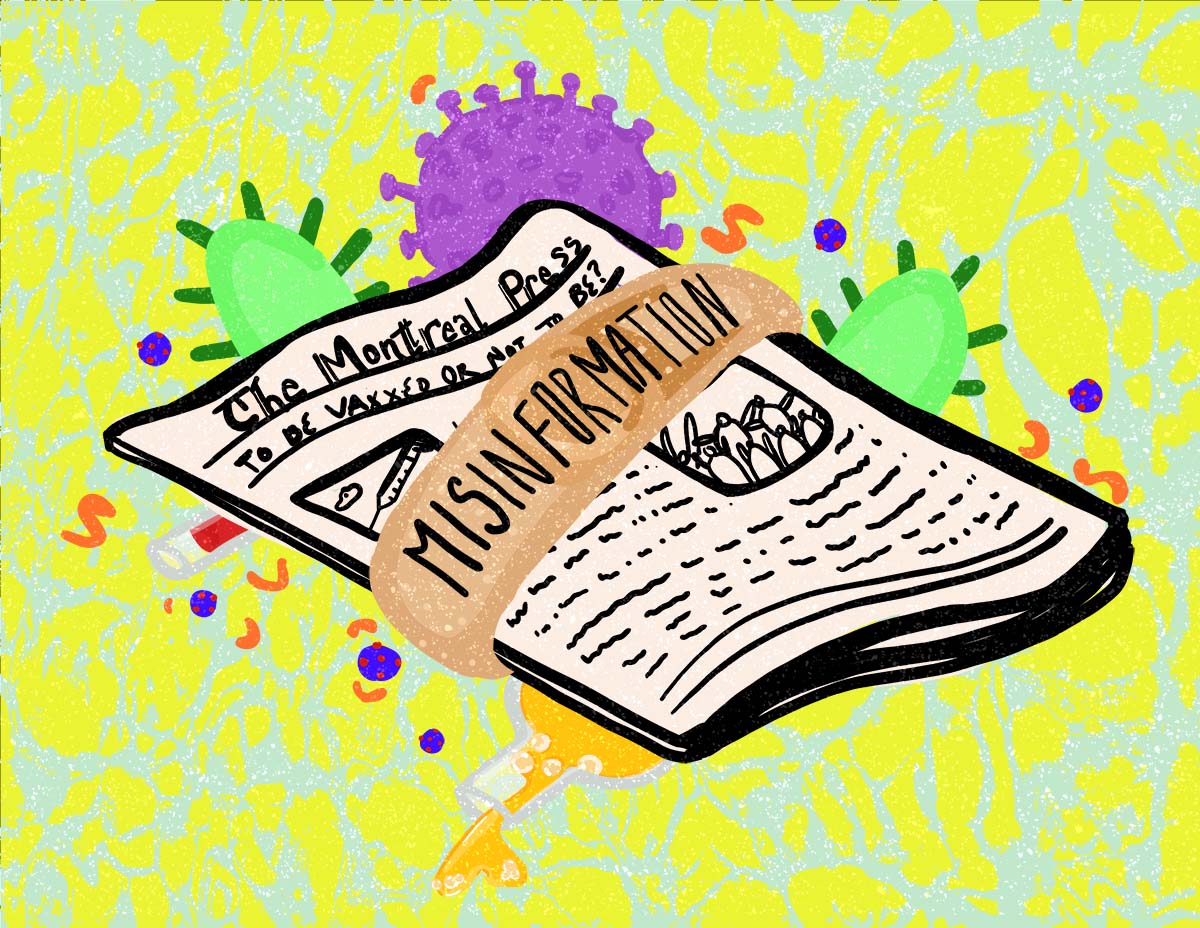For all pandemic news, journalists must base themselves on fact, not opinion.
According to the Canadian Association of Journalists’ ethics guidelines, journalists should not make assertions in their pieces. An assertion is a declaration used to express one’s personal beliefs, opinions, and feelings. Even if an assertion bears some truth, it is not a factual statement.
So because assertions may hold some factual integrity, they are sometimes hard to distinguish from facts. For this reason, social commentators who masquerade as journalists pose a threat to public safety — especially during the pandemic. Journalists should therefore separate their opinion from fact. If they do not, they should acknowledge how their views impact their ability to report with accuracy.
According to Statistics Canada, 90 per cent of Canadians relied on the internet for up-to-date information about COVID-19. This group mostly consulted online news sites, but they also consulted social media posts from news outlets, influencers, and other users. Furthermore, 53 per cent of Canadians have shared information about COVID-19 on social media without verifying its accuracy.
Based on these numbers, many Canadians do not have the time to fact-check the information they read. So, for the benefit of public health, journalists need to commit to the truth.
One media outlet that blurs the line between assertion and fact is Rebel News. This right-leaning media outlet pairs factual information with misinformation. At the very least, they seem to omit information to increase the credibility of their claims. For example, this October a Rebel News journalist reported on the effectiveness of natural immunity to prevent COVID-19. They argued that this immunity is a more effective way to fight COVID-19 compared to Pfizer vaccines. To support the argument, they cited an Israeli study that also formed this conclusion. However, this study has not been peer-reviewed.
Once someone gets the virus and recovers, their immune system retains some memory of the virus. This means that their body has a blueprint for how to combat the virus in the future.
The Centers for Disease Control and Prevention (CDC) published a peer-reviewed study in November that also studied the effectiveness of natural immunity versus vaccination immunity. It found that natural immunity does help stave off future infections but it is not as reliable as immunity gained from vaccinations.
These researchers also explained that the Israeli study analyzed the benefit of Pfizer vaccinations six months after injections were given. This time gap may have skewed the results because the immunity effects of the mRNA vaccines may have worn off.
The study also found that in some cases, natural immunity can help protect someone from COVID-19.
However, to become naturally immune to COVID-19, one needs to get the disease. So, it becomes a public health concern when journalists encourage people to get the disease or imply that all of our bodies can protect us from it.
According to the Public Health Agency of Canada, unvaccinated people are more likely to contract COVID-19. Since December 2020, there have been 837,239 reported COVID-19 cases. Of this group, 82 per cent were unvaccinated. Further, unvaccinated people accounted for 77 per cent of COVID-related deaths.
Misinformed health journalism becomes dangerous when you consider the death toll of COVID-19. This is especially serious because many people do not have time to fact-check every piece they read.
Also, in my opinion, misinformation pushes people to fear the COVID vaccine. A Canadian study looked at a randomized sample of 3915 tweets from Canadians who express anti-vaccination sentiments. They found that 48 per cent of tweets included worries about vaccine safety. So, if you pair this fear with the consumption of misinformation, it may encourage more people to expose themselves to COVID.
When it comes to health news, journalists have an imperative to consult and disseminate factual information. Those who assume this role cannot cherry-pick information to reinforce a political stance. They must investigate and accurately explain vaccine safety. Without this commitment, so-called journalists let Canadians down.
Feature graphic by Madeline Schmidt
